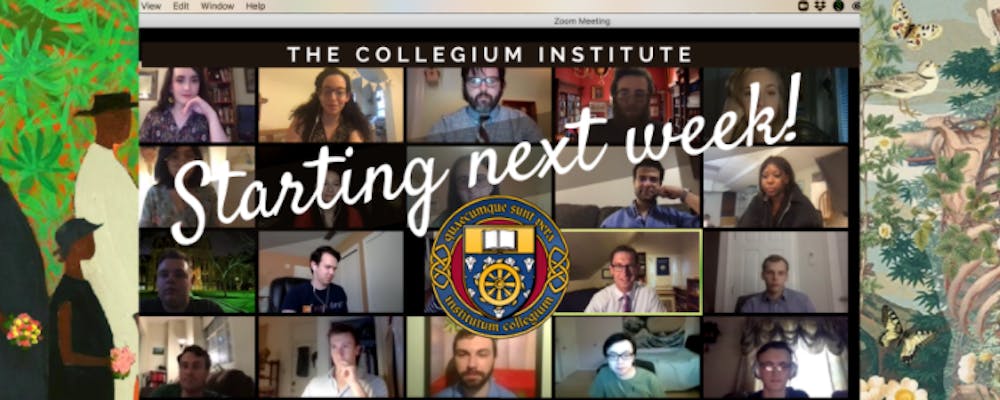
The coronavirus outbreak disrupted religious traditions for Penn's students of faith, leading to a widely-cited loss of community due to the virtual setting. This fall, religious organizations at Penn have managed to create a new status quo with a mix of in-person and virtual events amid a quarantined campus.
While some organizations have resumed some in-person services, student representatives from various religious groups say they are still struggling to maintain a sense of togetherness as operations remain largely online. Religious groups at Penn have also expanded their online presence and created innovative ways to engage their communities virtually.
University Chaplain Reverend Charles L. Howard told The Daily Pennsylvanian that the Office of the Chaplain & the Spiritual and Religious Life Center has been coordinating with religious groups on campus to hold virtual services and events. He said Penn is hopeful it can host more in-person activity next spring semester.
“The University is hopeful that we will be in person in some form next semester,” Howard said. “If [Penn] still virtual online, I think [faith organizations] will still be virtual online too.”
College junior and Penn Catholic Newman Community Treasurer Finn Connors said St. Agatha-St. James Church, which is partnered with the Newman Center and located at 38th and Chestnut Streets, is offering in-person mass for Catholics in Philadelphia. Mass is operating at limited capacity and attendees are required to wear masks and social distance, he added.
“I did go once right when it opened back up, and it was so refreshing,” Connors, who usually attends virtual Mass, said. “Everybody I talked to at Newman said that was one of the big things they were missing — physically going in and saying hi to everybody.”
Similarly, Grace Covenant Church, which is recognized as a student organization by the Office of the Chaplain & SPARC, has started to hold in-person services.
GCC traditionally held its Sunday service at Meyerson Hall, according to its website. Now during the online fall semester, GCC University City College Pastor Bryan Mun said the church leadership is holding services at the Sheraton Hotel located at 36th and Chestnut Streets. Services have a 25-person limit, and students are required to wear masks.
Aside from the limited, in-person services, Mun said most of GCC’s services and social events remain online.
“[We have to] come up with ways that we can stay and keep people engaged and make community groups feel like they’re connected," Mun said.
Daniel J. M. Cheely, the executive director of the Collegium Institute, said the attendance at the Institute's online webinars and discussions has grown in recent months as a result of efforts to expand its online presence through social media. Previously garnering about 30 to 100 people in the spring semester, the special events for the Institute's 'Faith and Reason' seminar series now have audiences of 250 to 1,000 people.
The Collegium Institute is an independent, academic community "with a Catholic vision" founded by Penn faculty, graduates, and students. The Institute typically hosts discussion-based events on campus in spaces like Harrison College House and Fox-Fels Hall.
College senior and GCC community member Richard Chen said GCC pastors have been hosting online, social activities like cooking demos to help foster a sense of community. Chen praised their efforts, adding that he enjoyed learning how to cook scallion pancakes alongside his GCC peers via Zoom.
“It’s a really nice way to get everybody interacting, everybody talking,” Chen said. “It’s a nice way for all of us to be engaged.”
The Newman community is also thinking of new ways to engage its students. Connors said he and his friend hosted a live podcast on Facebook for the Newman community to encourage students to get to know one another.
Both Connors and Mun, however, have noticed a decrease in attendance and engagement from students this semester due to the largely virtual setting.
“I think people got fatigued with having the same things [activities] going on,” Connors said. “I would say the social part of Newman kind of got decentralized.”
Mun added that virtual attendance for GCC services are half of what they were last year in person. The number of small groups hosting Bible study have also dropped from 15 to seven this year, he said.
For the Collegium Institute, Cheely said he has had difficulty replicating its 'Food for Thought' series, a weekly dinner discussion typically hosted at Harrison College House for undergraduate students. Because the Institute cannot provide food virtually, he found the experience to be quite different because students do not stay as long as they previously did to talk with one another and establish social relationships.
Despite the ensuing difficulties of carrying out services and social events, Chen said the COVID-19 pandemic has also been a great opportunity for students to focus more on their faith.
Howard urged students to reach out to religious leadership and not be deterred by the virtual services.
“I would encourage, particularly first-year students, to reach out to different campus ministries,” he said. “A part of the danger of us all being separated is that you can kind of lose hold [of your faith].”
The Daily Pennsylvanian is an independent, student-run newspaper. Please consider making a donation to support the coverage that shapes the University. Your generosity ensures a future of strong journalism at Penn.
Donate



